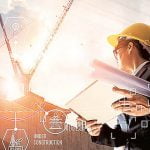When COVID-19 struck in 2020, around 320 million students were suddenly out of school. Though ed-tech companies jumped in to connect students with their schools, this was possible only to a limited audience. Many students in rural areas were not equipped with the required resources and, therefore, faced several challenges in this sudden shift to online learning.
According to various studies, less than 50% of students who reside in rural areas have home access to the Internet. This caused millions of students to miss a year of schooling during the lockdowns. Of those, many will never return to school and this has thwarted India’s years of efforts towards universalisation of education. This has been a problem for other countries as well. The UNESCO recently released a projection covering 180 countries, estimating that 24 million children may not return to education due to the pandemic. The largest share is in south and west Asia.
The question now is: how many more years will it take for India to meet its education goals and how will it achieve them? The basic challenge in imparting education is the availability of resources and infrastructure — from school buildings to teachers. However, driving increased education in the Metaverse may provide a solution.
Reduce physical infrastructure
Web 3.0-based metaverse is in the offing and will further change the Internet and revolutionise the current education system. It is expensive to build science labs, planetariums, history museums and other such structures in the real world; their regular maintenance becomes another challenge. Besides, buying scientific materials is also expensive. Often students never get to use it. The metaverse can reduce the dependency on physical infrastructure and offer the same in the digital space at a fraction of the cost.
Role of tech giants
Some time ago, Meta (previously Facebook) announced that it was opening up Horizon Worlds, its virtual reality world of avatars. A week later, it announced that the company would partner with school boards to provide an open-source curriculum on digital safety, online well-being and augmented reality (AR) to over 10 million students and one million teachers in India. Metaverse will give educators an opportunity to develop a curriculum integrating immersive technologies such as AR and Virtual Reality (VR) in STEM subjects.
Democratising STEM curriculum and making high-quality educational content available at low cost, without the need to have a mandatory sign up on any particular platform, is possible in the metaverse. It is expected that technology giants and start-ups will join this revolution and hasten the universalisation of education in India.
The ubiquitous medium of conversational BOTs, based on metaverse technology and combined with AI, can be a great medium for education and skilling in India. Imagine a metaverse-based bot that can provide direct education to students and customise teaching based on learning styles and individual capability. Personalised learning and attention to learners can become a possibility. Finally, personalised career counselling based on individual learning styles, skill mapping and academic temperament become possible. All the outcomes can accelerate the vision realised with 5G infrastructure, making the Internet faster.
[“source=thehindu”]




